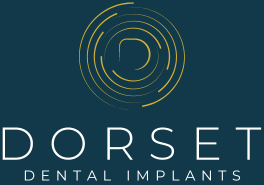Statistics About Tooth Loss – What Patients Should Know
Tooth loss, whilst common in the UK, is not something any patient should ignore.
Whether it’s a missing front tooth or a hidden back molar, ignoring missing teeth for six months can harm oral and general health.
Below, we’ve broken down some facts about missing teeth that our dentists feel patients should know, which should hopefully educate them on the consequences.
How prevalent is tooth loss in the UK?
- According to the Adult Dental Health Survey 2009, around 6% of adults in the UK are edentulous, meaning they have lost all their natural teeth. [Adult Dental Health Survey 2009]
- The prevalence of missing teeth tends to increase with age. Older adults are more likely to experience tooth loss due to decay, gum disease, and wear and tear. [Oral Health Foundation]
- 73% of people have one or more missing back teeth, and 7.6% have one or more missing front teeth. [National Dental Epidemiology Programme for England].
- In 2018, it was found that 7.5 percent of individuals in England aged over 85 had no natural teeth. The levels of edentulousness (no natural teeth) tend to increase with age [Statista].
- Almost three-quarters of Brits are without natural teeth, and 6% have no teeth left. A further 13% of adults wear partial dentures. [Dentaly].
Facts about dental implants
- An estimated 130,000 dental implants were placed in the UK in 2012, a number that is thought to have doubled since then.
- 95.4% of dental implants last 10 years or longer.
- Implants are more likely to fail in patients who smoke or have poor oral hygiene.
Source: [Dentaly].
- According to life table analysis, at the implant level, the cumulative survival rate at 3, 5, 10, and 15 years was 98.9%, 98.5%, 96.8%, and 94.0%, respectively, while at the patient level was 97.4%, 96.7%, 92.5%, and 86% at 3, 5, 10, and 15 years. [PMC].
Causes of tooth loss
- Common causes of tooth loss in the UK include dental decay, gum disease, and trauma. [NHS – Causes of tooth loss]
The consequences of missing teeth
- Missing teeth can significantly impact an individual’s quality of life, affecting their ability to eat, speak, and feel confident about their appearance. [Oral Health Foundation – Quality of Life and Oral Health]
- Missing teeth can impact oral health, affecting chewing ability, speech, and facial aesthetics. [British Dental Association – Consequences of missing teeth]
- Tooth loss can significantly impact chewing ability. According to the Adult Dental Health Survey, individuals with missing teeth may experience difficulties eating certain foods, affecting their nutrition. [Adult Dental Health Survey 2009]
- Missing teeth can affect speech, leading to difficulties in pronunciation and communication. This can impact confidence and social interactions. [Oral Health Foundation – Missing Teeth and Speech]
- The Oral Health Impact Profile is a tool used to assess the impact of oral conditions on an individual’s quality of life. Tooth loss can contribute to a higher OHIP score, indicating a negative effect. [International Journal of Dentistry – Oral Health Impact Profile]
- Beyond the physical impact, tooth loss can have psychosocial effects, including decreased self-esteem and confidence. It may affect individuals’ willingness to smile or engage in social activities. [British Dental Association – The Psychological Impact of Tooth Loss]
- Tooth loss can lead to bone resorption in the jaw, where the bone that supported the missing tooth begins to deteriorate. This can affect the facial structure and contribute to a sunken appearance. [NHS – Dental implants]
Need help with tooth loss? Live near Dorset? Browse our solutions.
